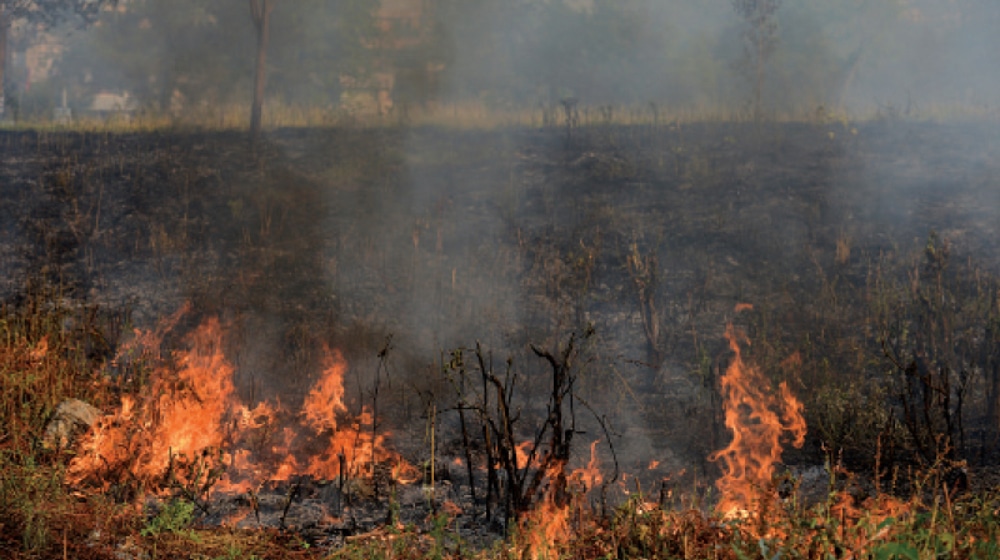
A wildfire broke out in Margalla Hills National Park in Islamabad on Monday, triggered by a severe heatwave. Citizens captured videos showing smoke billowing from the Margalla Hills, expressing concerns about the need to protect wildlife.
In a statement, Romina Khurshid Alam, the PM’s Coordinator on Climate Change and Environmental Coordination, noted that the Ministry of Climate Change and Capital Development Authority (CDA) personnel were making all-out efforts to contain the raging fire.
Substantial resources have been mobilized to address the fires, which have now extended to the Saidpur village area of the Margalla Hills.
“A CDA spokesperson confirmed that CDA teams have arrived at the location to extinguish the fire,” stated a CDA spokesperson. More than 75 firefighters from the CDA are actively involved in firefighting efforts, with extra teams dispatched to accelerate control over the blaze.
However, the firefighting teams are encountering difficulties due to strong winds, which are impeding efforts to contain the flames. “All available resources are being deployed to manage the fire,” added the CDA spokesperson, acknowledging the presence of Rescue and CDA teams, along with Rangers, overseeing the operations.
The spread of the fire to Saidpur village has heightened concerns regarding potential damage and underscored the urgent need for containment measures.
The country continues to experience an extreme heatwave, with soaring temperatures affecting most regions. The Meteorological Office previously warned of heatwave conditions likely to develop across the country, particularly in Sindh and Punjab, due to high pressure in the upper atmosphere.
The Ministry of Climate Change recently reported that around 26 districts were experiencing severe heatwaves, expected to persist until May 30, with temperatures possibly exceeding 50 degrees Celsius from May 23 to 28, according to Chief Meteorologist Sardar Sarfaraz.